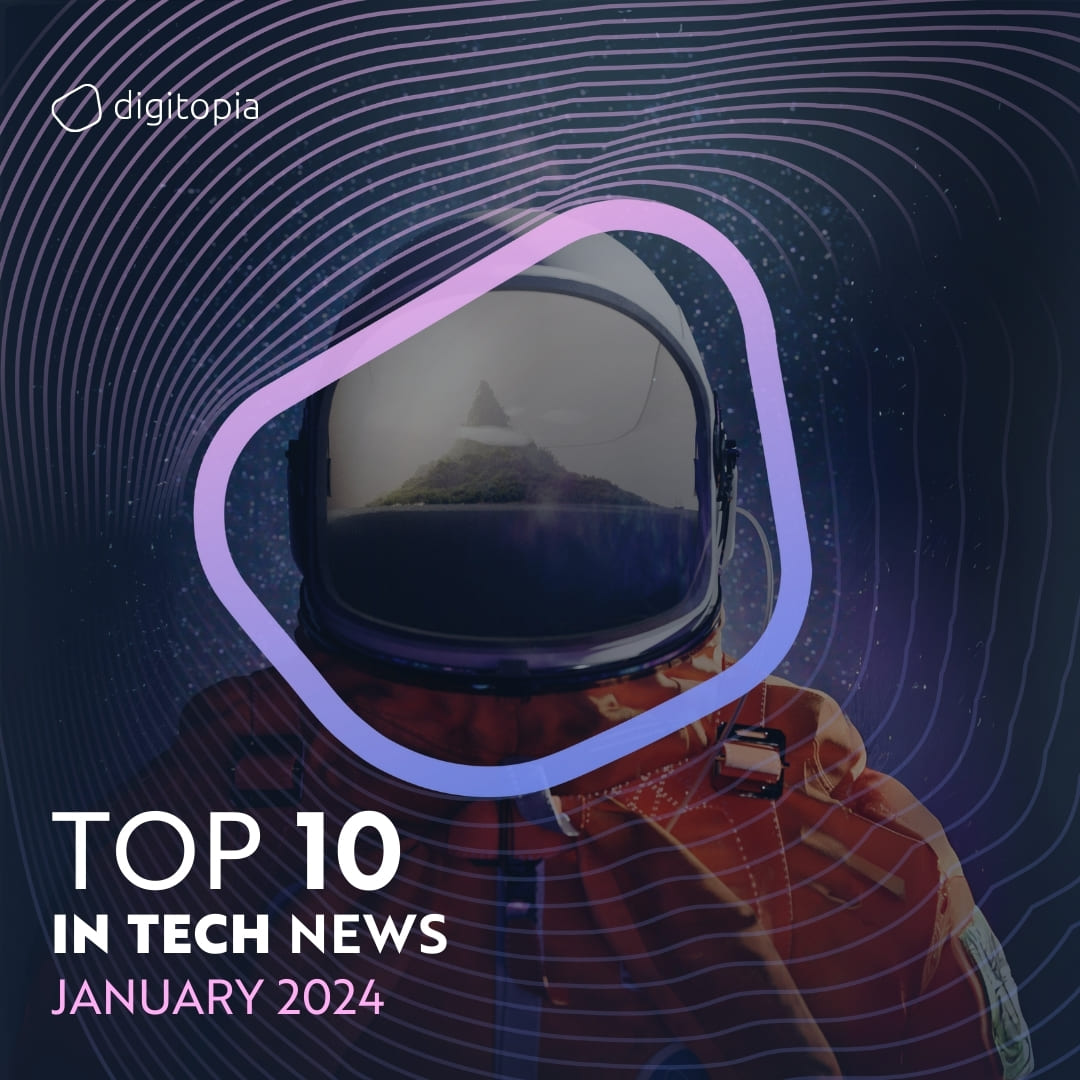
1- 10 Top Priorities for CIOs in 2024
In 2024, CIOs should focus on ten critical areas: 1) Gaining stronger control over data, using AI and analytics for efficient data management. 2) Balancing innovation with operational excellence. 3) Prioritizing cybersecurity to counter sophisticated threats. 4) Developing a robust talent plan to meet technological advancements. 5) Integrating AI deeply into business processes for innovation and efficiency. 6) Enhancing digital acumen across organizations. 7) Addressing the AI talent shortage through creative solutions. 8) Strengthening data governance for transformative enhancements. 9) Creating value by optimizing IT tools and infrastructure. 10) Making cost optimization a priority, focusing on agility and self-funding in transformations. These priorities highlight the need for CIOs to adapt and lead in a rapidly evolving technology landscape.
Source: CIO
2- Insights From Davos: The Future Of Work In The Age Of Generative AI
At this year’s World Economic Forum in Davos, generative AI emerged as a dominant theme, surpassing topics like climate change and cryptocurrencies. The rapid adoption of gen AI, with 55% of people globally using it in their work, has caused excitement and anxiety among leaders and workers alike. While CEOs largely see its benefits, many employees fear job loss. The forum emphasized the need for a human-centric approach to automation, focusing on reskilling and redesigning work to integrate gen AI effectively and equitably, ensuring a future-ready workforce that balances economic and empathetic considerations in this new era of work.
Source: Forbes
3- New brain-like Transistor Mimics Human Intelligence
Researchers from Northwestern University, Boston College, and MIT have created a new synaptic transistor, inspired by the human brain, that operates at room temperature, is energy-efficient, and retains information without power. This device, which processes and stores information simultaneously, surpasses previous brain-like computing devices by demonstrating associative learning and higher-level cognitive abilities. Utilizing moiré patterns from layered materials like graphene, this advancement in neuromorphic technology holds promise for complex problem-solving and AI advancements. The research, supported by the National Science Foundation, marks a significant step towards mimicking human brain functionality in computing.
Source: ScienceDaily
4- US to Provide Hundreds of Millions in State Support to Domestic Semiconductor Production
The Biden administration has announced a $162 million investment in Microchip Technology to boost domestic semiconductor production in the United States. This funding, linked to a 2022 law aimed at revitalizing U.S. semiconductor manufacturing, includes $90 million for enhancements to a facility in Colorado Springs, Colorado, and $72 million for expanding a plant in Gresham, Oregon. This investment from the U.S. Commerce Department will enable Arizona-based Microchip Technology Inc. to triple its domestic production capacity and lessen its reliance on overseas factories.
Source: Euronews
5- CES 2024 Recap: From Invisible TVs to Brain-scanning Headphones
CES 2024 in Las Vegas showcased a wide range of futuristic technologies, with a strong focus on the integration of artificial intelligence across various sectors. Highlights included Asus revealing its ROG Phone 8 series with advanced features, Nvidia announcing the GeForce RTX 4080 SUPER chip for enhanced gaming, and Volkswagen integrating ChatGPT in its cars. LG unveiled a transparent OLED TV, while Samsung and Hyundai developed “Home-to-Car” services. Innovative products like Sennheiser’s earbuds with aptX Lossless Audio, Lenovo’s AI-powered laptop, and Master & Dynamic’s brain-scanning headphones were also featured. The event continued with smart rings, AI-driven devices, large ULED TVs, health-monitoring earbuds, advanced VR headsets, and new Alexa Skills. Day 4 added mini-LED TVs, smart locks with face scanning, brain-scanning headphones, electric scooters, AI smart collars for pets, and versatile smart home controllers to the impressive list of innovations.
Source: Mint
6- SpaceX Launches First Satellites for T-Mobile’s Direct-to-cell Service
SpaceX and T-Mobile’s collaboration has launched the first six of approximately 840 Starlink satellites, marking a significant step in their direct-to-cell service project. This initiative, aimed at eliminating mobile dead zones, will soon begin field testing, leveraging T-Mobile’s spectrum and SpaceX’s satellite technology. While in the testing phase and awaiting FCC approval, this service focuses on providing outdoor connectivity in remote areas. Competitors like AT&T and Verizon are also exploring satellite connectivity, but the success and practicality of SpaceX and T-Mobile’s ambitious project, especially in terms of indoor coverage and user experience, remain to be seen.
Source: FierceWireless
7- Microsoft Executive Emails Hacked by Russian Intelligence Group
Microsoft reported that Nobelium, a Russian intelligence group, breached the email accounts of some top executives. This group, also behind the 2020 SolarWinds attack, was detected by Microsoft last week. Despite the breach, Microsoft believes there was no significant impact on customer data, production systems, or proprietary source code. The U.S. Cybersecurity and Infrastructure Security Agency is working with Microsoft to assess the incident.
Source: CNBC
8- Sam Altman Wants to Solve The Great AI Chip Shortage Himself
Sam Altman, head of OpenAI, is considering creating his own supply line of AI chips to address the current severe shortage impacting the tech industry. With the demand for high-end graphics processing units (GPUs) like Nvidia’s H100 skyrocketing, especially after the launch of ChatGPT, Altman is exploring the possibility of not just designing but also manufacturing these chips through a network of fabrication plants. This move towards vertical integration would give OpenAI full control over its chip-making process, differentiating it from competitors who rely on third-party suppliers.
Source: Yahoo
9- Reducing Friction to Build Connections: 7 CX Trends to Prepare for in 2024
First, developing more immersive and personalized experiences, both digitally and in-store. Second, enhancing conversational interactions through AI tools like ChatGPT. Third, utilizing AI for more efficient and automated processes. Fourth, creating relevant and evergreen content tailored to various audiences. Fifth, focusing on personalized customer experiences throughout their journey. Sixth, ensuring seamless journeys across multiple touchpoints. Seventh, balancing AI automation with the human touch for better customer engagement. These trends suggest a blend of technology and personalization is crucial for marketing success.
Source: TheDrum
10- Google Turns Off Cookies for 30 Million Chrome Users, and That’s Just 1%
Google has begun phasing out third-party cookies, starting with 1% of Chrome users, and plans to eliminate them entirely by Q3 2024. This significant change affects digital advertising, as third-party cookies have long been used for targeted ads. The shift is driven by increasing digital privacy concerns, and Chrome’s dominant market share makes its cookie removal impactful. Advertisers, still heavily reliant on cookies, are scrambling to adapt to new tracking methods like Google’s “Privacy Sandbox.” The end of third-party cookies necessitates that advertisers diversify data sources and embrace new technologies to stay relevant.
Source: Insider

